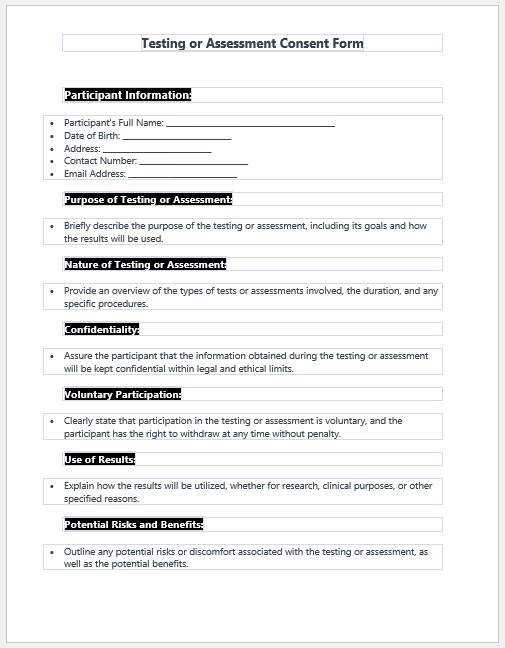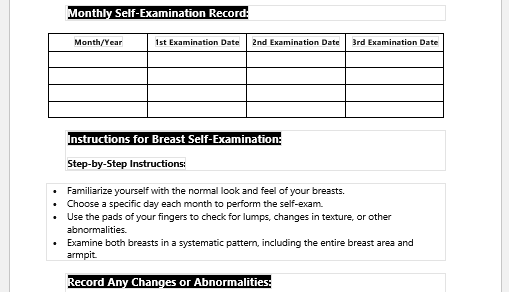Testing of any type is generally conducted with the permission of the person being tested, as no one can be evaluated for anything unless they show their willingness to do it. However, individuals who are under 18 or older cannot give consent as they are not capable enough to think about what is wrong and what is right. For such people, a consent form is created that is signed by their guardians, who are in a position to allow someone to test their child.
A testing consent form obtains authorization from the parents before they practically start the assessment of the individual. Usually, schools, hospitals, and all those institutions use these forms because they feel the need to test the child.
Is it essential to use an evaluation authorization form?
Consent from the guardians is collected and then documented with the use of the authorization form. This document is very helpful for an institute that needs authorization from a party. In many states, it is unlawful to evaluate a person who has not been asked first. So, it becomes essential for an organization or an individual to use a consent form to obtain permission.
What is the purpose of using the authorization form for evaluation?
The basic purpose of this form is to enable the guardians or parents of the child to know about the evaluation that the institute wants to carry out. They are informed about the purpose of the test, the nature of the test, how important it is for the child, and much more. The parents are also informed about the implications of the test and other types of risks that a minor may face due to testing.
The use of this mentally prepares parents for everything, and when they realize the potential benefits of the testing, they often give permission and ask the evaluators to go ahead.

The Sample Form File: 58 KB
What information does the consent form collect?
Parents who are filling out this form are asked to provide the following details, including:
Details about the participant:
The participant is generally a minor who is going to be tested. The details of that person are collected, including his name, gender, age, and some specific details depending on the organization. In the case of a school, it would be the roll number of the child, and in the case of a hospital, it could be the patient ID that the hospital assigns to the patients for quick identification.
Details of the test:
This part of the form provides information regarding the test, such as its name, purpose, process, duration, and much more. After going through this section, parents come to know about the evaluation process and its main purpose.
Confidentiality details:
Parents are also informed through this form of how confidential the results of the test will be, as many parents don’t want the results of the tests to be revealed to any third party. This form makes them believe that the results and the entire process of evaluation will be kept confidential since the organization respects the privacy of the people.
Consent clause:
In the last section of the form, there is a consent clause in which the person filling out the form agrees with the terms and conditions of the organization and shares his deep understanding regarding the evaluation procedure. The name of the person giving authorization, his relationship with the child, as well as contact details, are also collected.
At the end of the form, the signatures of the authorizer are also taken. The form becomes a formal document based on which the testing procedure is carried out.
Any organization that needs this form should know that it is totally up to the parents of the child whether they want to allow the process of evaluation to take place or not. The institute that needs the consent should wait for the consent to come and then start the process. If parents refuse to give the authorization, they should not try to force or pressure them to sign the form and let the evaluation happen.
Once consent has been obtained, the form becomes a major part of the database of the institute and can be used if there is any dispute between the two parties.
- Trackers for Medical Facilities
- Nursing Documentation Templates
- Letters for being Unfit to Travel
- Mental Health Evaluation Forms
- Forms Used by Pediatricians
- Various Forms Related to Pregnancy Verification
- Common Forms Used by ENT Specialists
- Patient Registration Confirmation Messages
- Quotation Letter for Medical Services
- Mental Health Letter by Doctor
- Excuse Letter for Absence due to Medical Checkup
- Response Letter to Feedback on Improvement in Hospital


